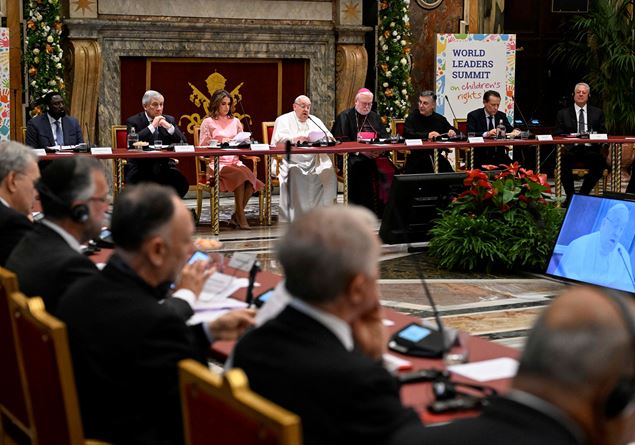
Of Susanna Paparetti
On the one hand there are the numbers that show a country divided in two between north and south, funds to be found and others committed for which cuts will have to be made, but what emerges overwhelmingly from the conference Without Distinctions. So that all minors have the same opportunitiesorganized by the Aga (Authority for Children and Adolescents) which took place this morning in Rome, on the occasion of World Children’s Day which will be celebrated tomorrow, is the disconnect between skills that slows down an already uphill road: « Italy historically experiences a complicated situation in terms of public finances, we find ourselves having to make difficult choices in terms of budget policies. However, precisely in this phase it is necessary that the pursuit of the best interests of the minor constitutes the prevailing criterion” he said Carla Garlatti (Authority for children and adolescents) «different responses need to be given to different situations. This applies even more to the welfare levels of benefits. It is not enough to define them, they must be adequately financed and, above all, their concrete implementation in each individual territory must be ensured.”
Guaranteeing children and young people equal rights and the same opportunities to exercise them, allowing physical, mental, spiritual, moral and social development means laying the foundations for the future: in compliance with the provisions of the UN Convention on the Rights of Children and Adolescents . Yet the migration of children affected by cancer, who move from the south and the islands to other regions for treatment – provided that the family economic situation allows it, even in the face of enormous sacrifices – is 59.6%, without counting the differences regional compared to the number of beds in pediatric intensive care, just think that in Sardinia people are forced to be hospitalized in those intended for adults. Even the presence of social workers is different, the Lep set by law considers one every 5 thousand, in the south the ratio drops drastically to one every 10 thousand. We know well, however, that, in addition to the right to care, family, school, the possibility of socializing in peaceful, non-degraded or even less dangerous contexts are fundamental in the education of children: «I think it is important to say that today in Italy opportunities are not equal. It is a difficult and complex world, but to be pushers of opportunities, as I like to say, we must grasp the data that reminds us that multidimensional poverty affects families with minors more than all others” he explains Marco Pagniellodirector of the Italian Caritas «families that in the south are predominantly Italian and in the north of immigrants».
A moment from the meeting on November 19th in Rome
A two-sided coin where poverty is also linked to the impossibility for women to work, not knowing who to leave their children with: once again grandparents prove to be indispensable. In the approximately 6,000 Caritas listening centers located throughout the country, those who contact them are almost always children or grandchildren of people who have already received the support of these structures: a detail that should give pause for thought: «Minors who stop planning for the future they are satisfied. It is necessary to regroup the communities, the families, the school, the facilities where they play sports, the parishes around them” continues Pagniello. «Everyone must dialogue by creating an educational alliance. Poverty in Italy today is also linked to study poverty.” In our country, absolute poverty affects on average 13.8% of minors (in absolute terms 1 million 295 thousand), not affecting families equally; it is in fact higher among those with three or more minors and in those made up solely of foreigners. For the latter the rate reaches 41.4%. Even the percentage of infant mortality linked to the first year of life is different between north and south. Garlatti recalled that the Guarantor Authority, despite not being an active administration and having limited economic resources, has put in place some concrete initiatives such as financing projects that promote inclusion and sports practice among minors in municipalities under 15 thousand inhabitants and activating initiatives in six large cities to combat school dropout. But more needs to be done, if some tragic news events lead us to think that there are areas and social pockets where nothing is possible anymore, we must pause and ask ourselves what are the examples and values offered by families and society as a whole. Young people must be asked to make proposals knowing that they will receive attention. Now must be the time for listening, for community, for the transfer of skills that leads institutions not to waste efforts and funds. On the occasion of the Day.
Istock cover photo







